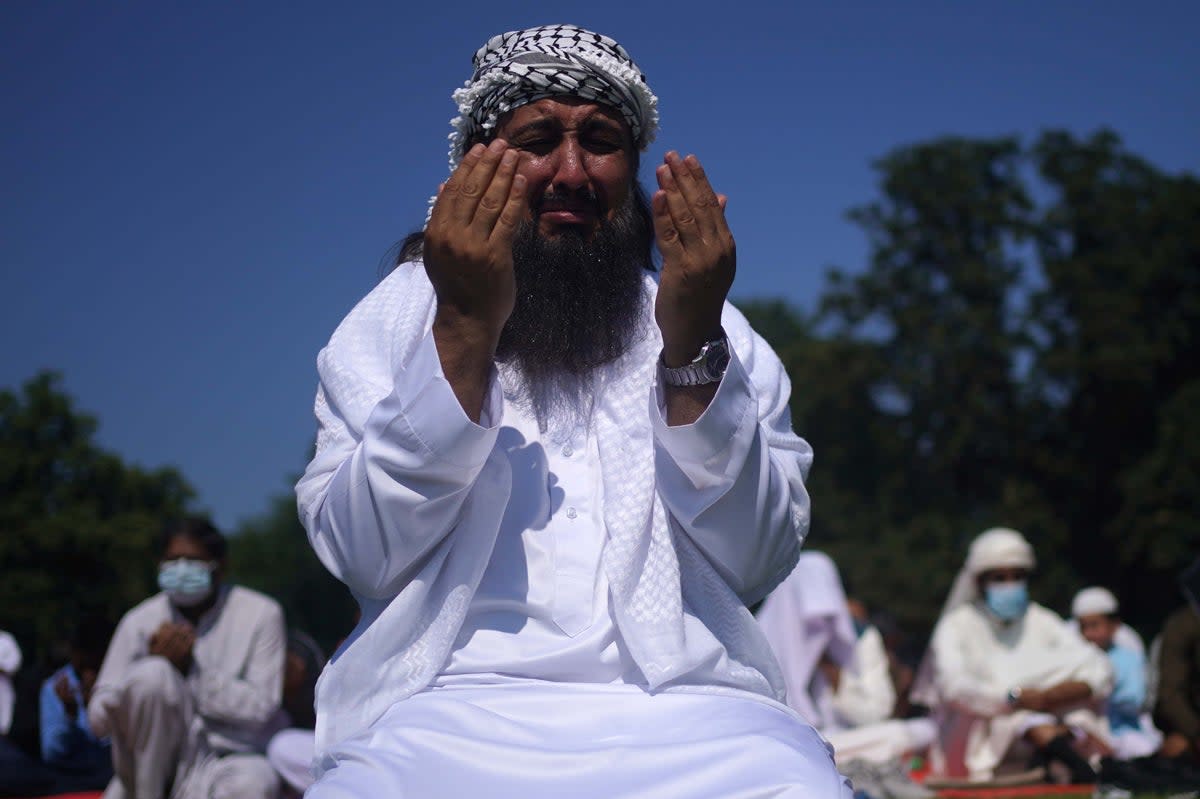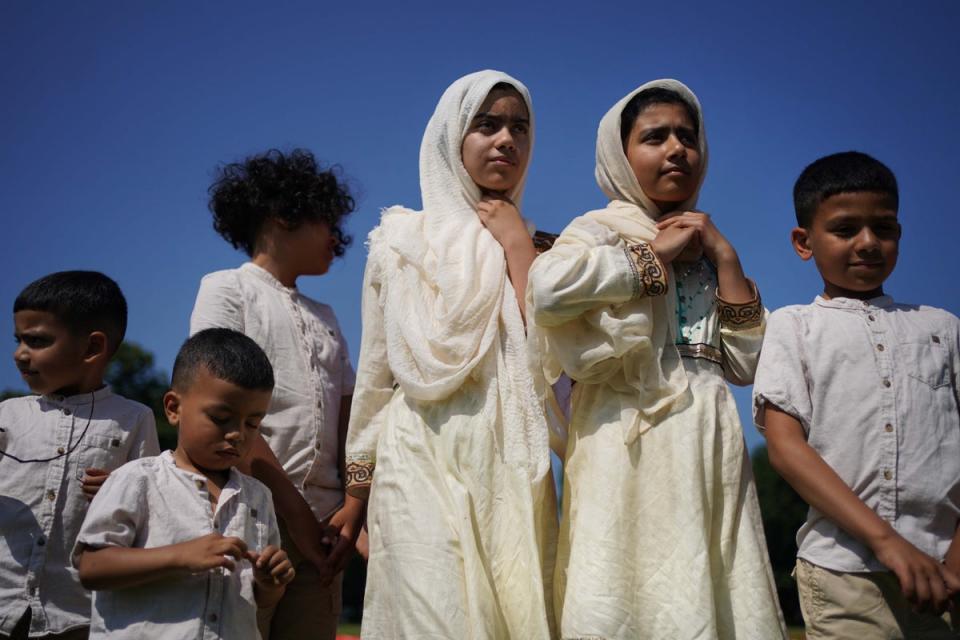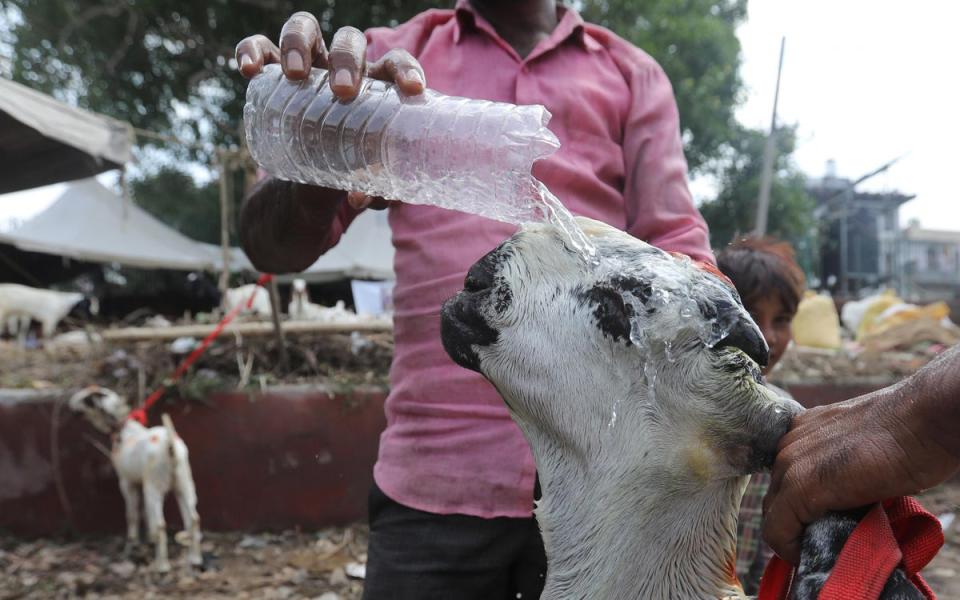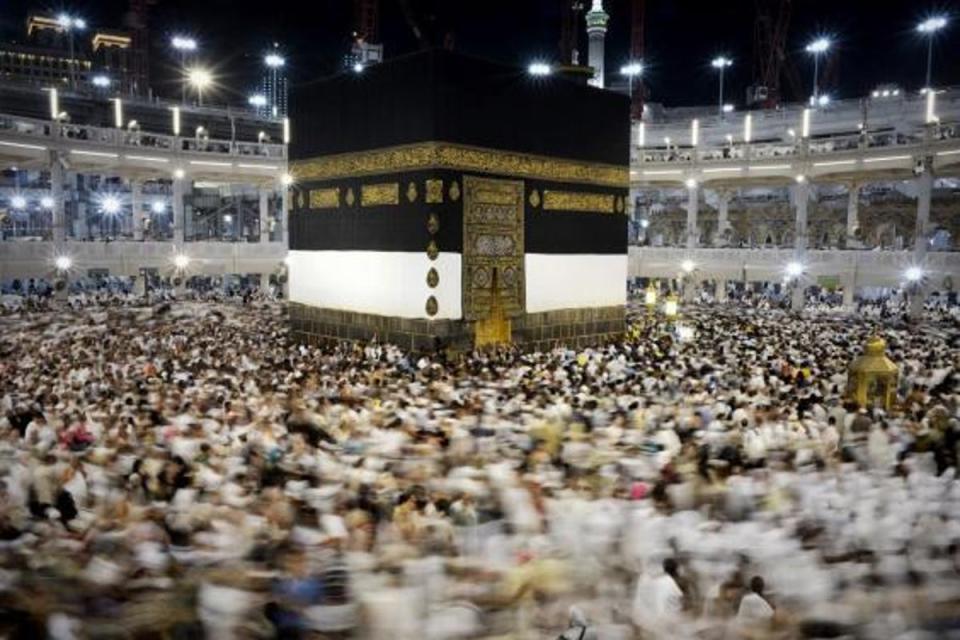When is Eid al-Adha in 2023? Muslim festival’s meaning and how it’s celebrated

Eid al-Adha, also known as the “Festival of Sacrifice” and a major religious holiday celebrated by Muslims worldwide, is fast approaching.
The second and most significant of the two main holidays in Islam after Eid al-Fitr, it honours the willingness of Prophet Ibrahim (Abraham) to sacrifice his son Ismail as an act of obedience to Allah’s (God’s) command. However, just as Ibrahim was about to sacrifice his son, Allah provided a ram as a substitute.
Here is everything you need to know about Eid al-Adha 2023, including London events celebrating it.
When is Eid al-Adha 2023?
Eid al-Adha takes place on the 10th day of the Islamic lunar month of Dhu al-Hijjah (also written as Dhul Hijjah), the 12th and final month of the Islamic calendar. It follows the completion of Hajj.
Like Eid al-Fitr, the date of Eid al-Adha is determined by the sighting of the new moon.

The date of the big Eid also varies every year, much like Eid al-Fitr. This year, it is predicted to start on June 28, although this can vary around the world.
How do Muslims celebrate Eid al-Adha?
The festival typically lasts for four days, during which Muslims participate in various religious rituals and activities. One of the central practices is the sacrifice of an animal, typically a sheep, goat, cow, or camel. This sacrifice is performed to emulate the willingness of Ibrahim and to remember his devotion to God.
The meat from the sacrificed animal is divided into three parts: one part is kept for the family; another is shared with relatives and friends; and the remaining one is given to the less fortunate and those in need.

In addition to the sacrifice, Muslims also engage in prayer, particularly the congregational prayer held in mosques or prayer grounds. This is performed in the morning and is followed by a sermon delivered by an imam (the person who leads prayers in a mosque).
Eid al-Adha is a time for Muslims to reflect on the values of sacrifice, obedience, and gratitude. It is a period for families to come together, share meals, exchange gifts, and extend acts of kindness to others.
Like Eid al-Fitr, it is a time of celebration, strengthening community bonds, and practising generosity by helping those in need.
What is Hajj?
Muslims celebrate Eid al-Adha on the last day of Hajj — an annual pilgrimage to Mecca (Makkah) in Saudi Arabia and the Fifth Pillar of Islam.
It is considered a religious obligation for able-bodied and financially capable Muslims to perform at least once in their lifetime. The Hajj pilgrimage takes place during the Islamic month of Dhul Hijjah and takes between five and six days.

Hajj traces its origins back to the time of Prophet Ibrahim (Abraham) and his family. It involves a series of specific rituals and acts of worship that commemorate the trials and sacrifices of Prophet Ibrahim and his family. The pilgrimage is a symbol of unity, equality, and devotion, as Muslims from diverse backgrounds and nationalities come together in a shared spiritual journey.
During Hajj, Muslims stand before the Kaaba together, a shrine built by Ibrahim, and praise Allah. They also engage in other rituals such as the Stoning of the Devil. This involves pilgrims throwing pebbles at three pillars known as Jamarat, symbolising the rejection of evil and temptation.
What’s happening in London for Eid al-Adha 2023?
1Eid Festival
For almost 20 years, 1Eid have been serving the community with the best of spiritual Eid prayers at festivals across London.
This year, the 1Eid festival will take place across five different locations — Southall Park, Goodmayes Park, Harrow Kenton Recreation Field, Luton Stockwood and Wardown Park.
The day starts with Eid Salah for men and women at 10am, followed by a range of activities throughout the day. These include petting zoos, donkey rides, circus performers, nasheed (a form of Islamic vocal music) groups and fire jugglers. A huge fireworks show will end the day.
Various dates and locations. Tickets available here
Eid in the Park, White Hart Lane
Whether it’s getting your thrill fix at the fun fair, chilling out at a BBQ or relaxing in the sun with an ice cream, Eid in the Park has it all.
There is also an opportunity to buy from a range of stalls from organic foods, crafts, books, toys and gifts at the Souk Zone, or sell to a unique and large crowd if you are a small business. And, of course, you can tuck into some of the finest halal food and beverages.
June 28; N22 5QW. Tickets available here
The London Eid al-Adha Fair, Epsom Downs Racecourse
Organised by Inspiring Community Events at Epsom Downs Racecourse, the London Eid al-Adha fair brings together different businesses across the community under one roof.
At this free event, visitors can feast on a delicious range of foods to complement the Eid experience and shop at Muslim-owned stalls. Meanwhile, children can tire themselves out on the bouncy castles.
July 2; KT18 5LQ. Tickets availabe here
Eid in the Park with Annoor, Acton Park
Expect funfair rides, international food stands, a henna station and more at this year’s Eid in the Park with Annoor.
It is billed as a great opportunity to celebrate Eid with your loved ones and meet new friends in the community.
June 28-July 2; W3 7JX. Tickets available here

 Yahoo Movies
Yahoo Movies 
